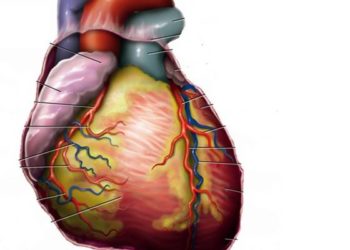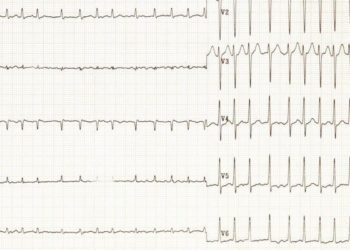Current guidelines may not provide adequate instruction for prescribing anticoagulation in patients with atrial fibrillation
1. Significant variation in benefit per person was observed depending on stroke rates utilized in current guidelines.
2. The greatest population benefit was shown when using stroke rates from the Danish National Patient Registry.
Evidence Rating Level: 2 (Good)
Study Rundown: Patients with atrial fibrillation (AF) are often treated with oral anticoagulation, to decrease stroke risk. However, this medication also has significant risks of major hemorrhage, such as intracranial hemorrhage. The authors of this study aimed to determine the effect of variation in published AF stroke rates on the net clinical benefit of anticoagulation. It was observed that current guidelines might not provide adequate guidance for prescribing anticoagulation in patients with AF. Limitations of this study included generalizability, as the study population was limited to patients insured through Kaiser Permanente Northern and Southern California. This population may not be representative of all patient cohorts.
Click to read the study in Annals of Internal Medicine
Relevant Reading: How do anticoagulated atrial fibrillation patients who suffer ischemic stroke or spontaneous intracerebral hemorrhage differ?
In-Depth [analytic model]: The authors conducted a Markov model decision analysis. They utilized Warfarin as the primary case, with non-vitamin K antagonist oral anticoagulants (NOACs) as a secondary analysis. The main measurement was quality-adjusted life-years (QALYs) in patients. A total of 33 434 adults with AF were included in this study, of which 27 179 had a CHA2DS2-VASc score of 2 or more. The authors’ goal was to measure the effect of variation in published rates of ischemic stroke (Danish, Swedish, ATRIA, and SPORTIF) on the expected benefit of anticoagulation in AF patients not receiving anticoagulant therapy. They observed that the greatest benefit was seen with Danish rates, with the least benefit seen with ATRIA rates. Further, optimal CHA2DS2-VASc score threshold for anticoagulation different depending on the rates utilized in the model.
Image: PD
©2018 2 Minute Medicine, Inc. All rights reserved. No works may be reproduced without expressed written consent from 2 Minute Medicine, Inc. Inquire about licensing here. No article should be construed as medical advice and is not intended as such by the authors or by 2 Minute Medicine, Inc.






